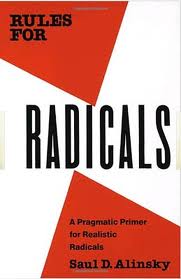Please remember what we said at the outset of this course. We are not recommending Alinsky’s atheistic, Marxist, utilitarian viewpoint – nor are we recommending his tactics for effective campaigning and his lust for power. You make up your own mind about all those things, and whether they foster positive change in the world and in your life or not.
However, we propose for your consideration that Alinsky’s work is, if nothing else, influential and important in our time. Time magazine observed that “American democracy is being altered by Alinsky’s ideas.” Likewise, Conservative icon William F. Buckley claimed that he was “very close to being an organizational genius.”
This is a course about the tactics of influence. Even if you disagree with Alinsky and his rules, the free-thinking student should not be unaware of him and what he proposed. Be prepared. Understanding the tactics of an ideological opponent is one key to overcoming them – and the bad ideas they might represent.
Remember that while you might be in an ideological minority, you can be an agent for change. If you keep these rules in mind, you should be able to identify them when they are being used against you – and use some of them to help affect change for the good on your campus. We hope the examples from our student hosts from the Leadership Institute have helped to make the point in a way you won’t forget.
Indeed, many of Alinsky’s 13 Rules are simple principles for good communication. Filter everything through a grounded understanding of what it means to be human, what constitutes good communication, and what elevates what is good, right, and true. Use what you can, throw out what is incompatible with your ethic and your code for moral conduct. It is vital to have good ideas win the day in our day. But winning at all costs is not the aim of a (good!) radical. We hope this Thinker Education course will help you to thrive in that balance!








